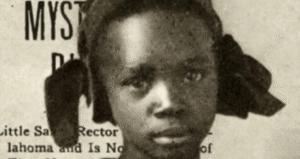Moscow is sometimes called The Third Rome due to its multifaceted historical, cultural, and religious significance deeply rooted in centuries of tradition. The title originates from the profound idea that after the fall of the Byzantine Empire, Moscow emerged as the preeminent center of the Eastern Orthodox Church, embracing and extending the spiritual legacy of Rome and Constantinople, two great pillars of early Christianity. This historical connection between Moscow and the concept of Rome carries substantial weight in understanding the city’s rich historical tapestry and its pivotal role in shaping the religious landscape of the region.
Religious Influence
The Russian Orthodox Church wielded an immense influence in solidifying Moscow’s claim as The Third Rome, infusing the city with a deep sense of religious fervor and spiritual authority. Following the momentous fall of Constantinople to the Ottoman Empire in 1453, Moscow positioned itself as the steadfast defender and champion of Orthodox Christianity, viewing itself as the legitimate heir to the spiritual legacy of Rome and Constantinople. This religious influence not only bolstered Moscow’s prestige but also underscored its pivotal role in safeguarding and propelling the Orthodox faith in a rapidly changing world.
The Role of Ivan III
Ivan III, also known as Ivan the Great, played a crucial role in endorsing this notion by marrying Sophia Palaiologina, the niece of the last Byzantine emperor. This union symbolized the continuity of the Byzantine imperial line and reinforced Moscow’s claim to be the successor of the Orthodox Christian tradition. The marriage also brought Byzantine court rituals and traditions to Moscow, further embedding the cultural and religious ethos of Byzantium into Russian society.
Architectural Influence
Moscow’s architectural landscape also reflects its religious significance, with iconic structures such as the Cathedral of the Dormition and the Kremlin. These buildings are not only masterpieces of Russian architecture but also serve as symbols of the city’s religious and political aspirations. The Kremlin, in particular, became the seat of power and a central symbol of Moscow’s authority, blending religious significance with political might.
Political Implications
The concept of Moscow as The Third Rome transcended mere religious symbolism, venturing into the realm of geopolitics and power dynamics. It served as a potent political symbol, signifying Moscow’s ambitious quest for supremacy and leadership within the Orthodox realm, effectively positioning itself as a formidable contender against both the Catholic Church in Rome and the expansive Muslim Ottoman Empire.
Expansion of Territory
Under the rule of Ivan the Terrible, Moscow expanded its territory significantly, consolidating power and influence across vast regions. This expansion was not merely about gaining land but was also a strategic move to assert dominance and protect the Orthodox faith. By expanding its borders, Moscow could exert influence over newly acquired territories and integrate them into the Orthodox Christian fold.
Diplomatic Relations
Moscow’s claim as The Third Rome also had significant diplomatic implications. The city engaged in complex diplomatic relations with other European powers, often using its religious authority as a means of negotiation and influence. This diplomatic maneuvering was evident in Moscow’s interactions with Poland, Lithuania, and other neighboring states, where religious and political interests often intertwined.
Cultural and Social Impact
Beyond its religious and political dimensions, the notion of Moscow as The Third Rome had profound cultural and social implications. It fostered a unique cultural identity that blended Russian and Byzantine elements, creating a distinctive Russian Orthodox culture that persists to this day.
Literature and Art
Russian literature and art from this period reflect the influence of the Third Rome ideology. Iconography, religious texts, and literary works often depicted themes of spiritual continuity and divine destiny, reinforcing the idea of Moscow as the spiritual successor to Rome and Constantinople. These cultural artifacts served as a medium to disseminate and reinforce the Third Rome narrative among the populace.
Education and Scholarship
The establishment of religious schools and the promotion of Orthodox scholarship were key components of Moscow’s cultural strategy. These institutions were instrumental in educating clergy and laypeople alike, ensuring the propagation of Orthodox teachings and the Third Rome ideology. The emphasis on religious education helped solidify Moscow’s role as a center of Orthodox learning and scholarship.
Common Misconceptions
While the notion of Moscow as The Third Rome is deeply ingrained in Russian history, it is not without its misconceptions. One common error is equating the religious symbolism of the Third Rome with imperial ambitions, which can oversimplify the complex interplay of faith and politics.
Misinterpretation of Religious Motives
Some interpretations suggest that Moscow’s Third Rome narrative was purely a pretext for territorial expansion and political dominance. While these elements were undoubtedly present, they do not capture the full scope of the religious and cultural motivations that also drove this ideology. Understanding the nuanced motivations behind the Third Rome concept requires a deeper appreciation of the historical and cultural context.
Oversimplification of Cultural Identity
Another misconception is the oversimplification of Russian cultural identity as merely a continuation of Byzantine traditions. While Byzantine influences were significant, Russian culture developed its own unique characteristics, blending Slavic traditions with Eastern Orthodox practices. This fusion created a distinct cultural identity that cannot be wholly attributed to Byzantine heritage alone.
Legacy and Symbolism
Despite being a concept rooted in the annals of history, the notion of Moscow as The Third Rome exerts a lasting legacy and symbolic resonance that reverberates throughout modern Russia. It serves as a poignant emblem of the nation’s enduring commitment to upholding the principles of Orthodox Christianity and its distinctive role as a cultural crossroads bridging the East and the West.
Influence on Modern Russia
In contemporary Russia, the Third Rome ideology continues to influence national identity and foreign policy. The Russian Orthodox Church remains a powerful institution, and its historical ties to the Third Rome narrative inform its role in modern society. This influence is evident in Russia’s efforts to position itself as a leader of the Orthodox world and a defender of traditional Christian values.
Cultural Heritage and National Consciousness
Moscow’s identity as the Third Rome is deeply embedded in Russian cultural heritage and national consciousness. It is celebrated in literature, art, and public discourse, serving as a reminder of Russia’s historical significance and spiritual legacy. This cultural heritage is not only a source of national pride but also a foundation for Russia’s future aspirations on the global stage.
Practical Implications for Understanding Moscow
For anyone interested in Russian history and culture, understanding the concept of Moscow as The Third Rome offers valuable insights into the city’s historical development and its role in shaping the wider region. Here are some practical ways to explore this rich heritage:
- Visit Historical Sites: Explore the architectural marvels of Moscow, such as the Kremlin and the Cathedral of Christ the Savior, to gain a firsthand appreciation of the city’s religious and cultural significance.
- Engage with Local Experts: Participate in guided tours or lectures led by historians and scholars who specialize in Russian history and Orthodox Christianity.
- Study Russian Literature and Art: Delve into the works of Russian authors and artists who have captured the essence of the Third Rome ideology in their creations.
- Reflect on Modern Implications: Consider how the historical legacy of the Third Rome continues to influence contemporary Russian society and politics.
By engaging with these practical approaches, one can develop a deeper understanding of Moscow’s unique role in the historical and cultural landscape of Eastern Orthodoxy and beyond.
In summary, the concept of Moscow as The Third Rome is a rich tapestry woven from historical, religious, political, and cultural threads. It is a narrative that has shaped the identity of Moscow and continues to influence its place in the world today.




